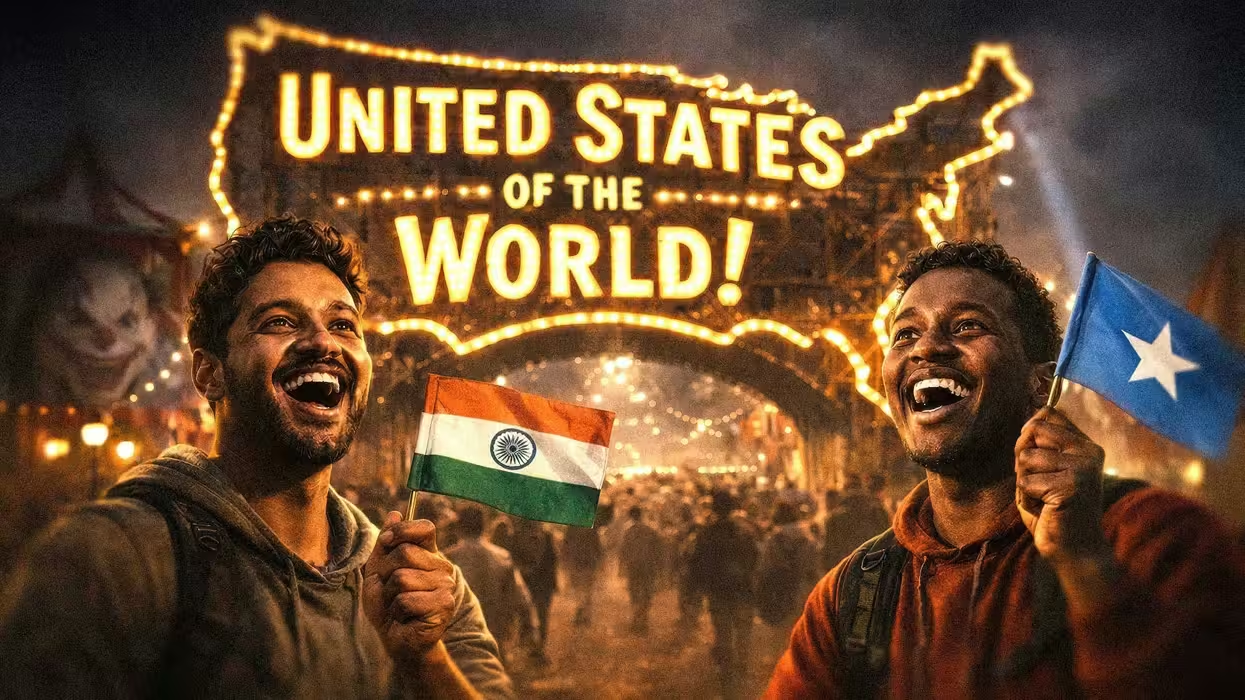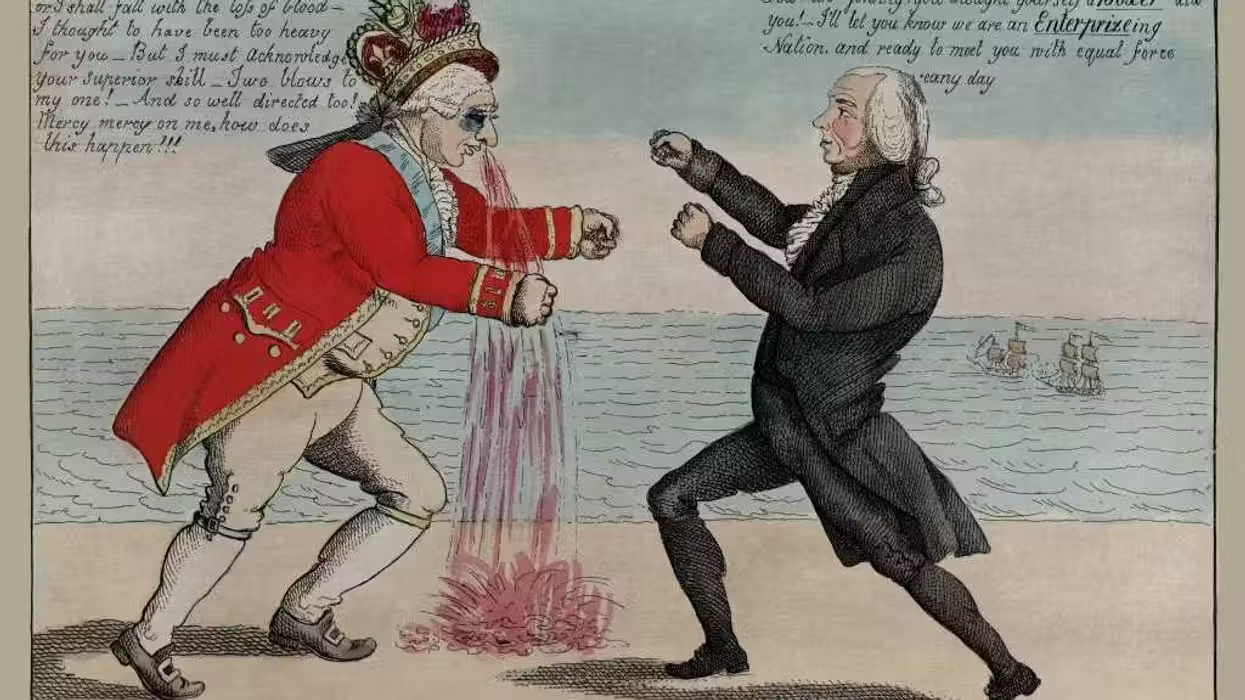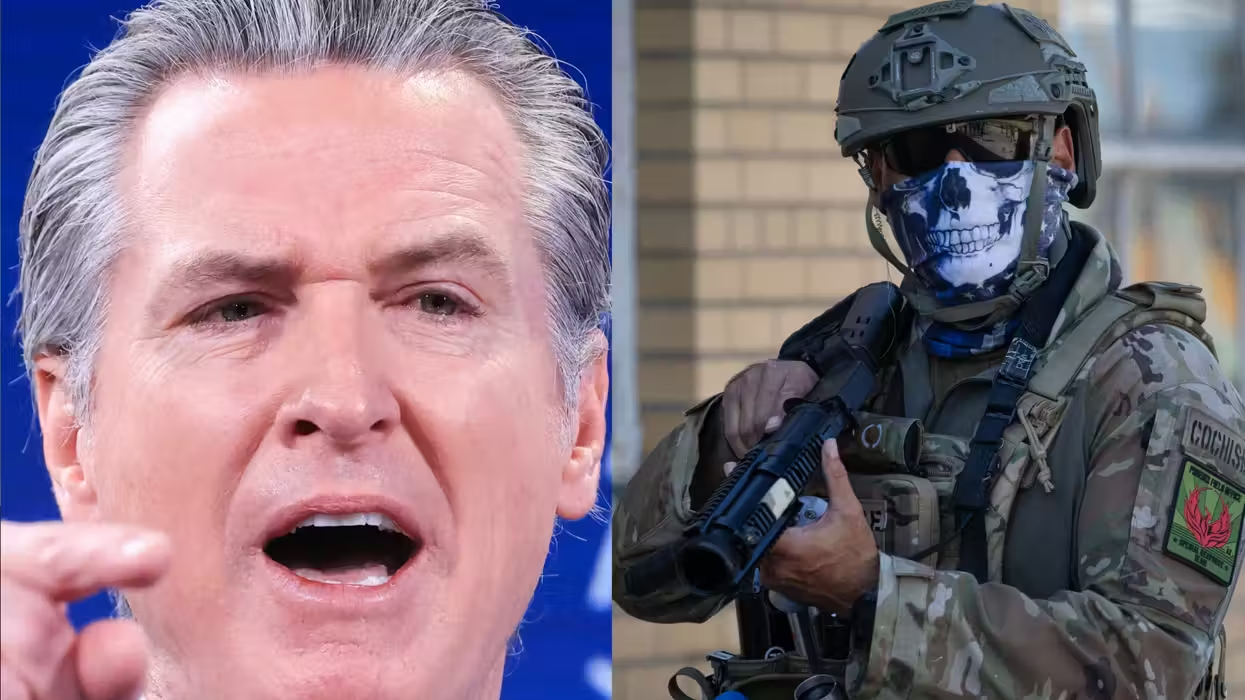Recently, conditions in Ukraine have been intensifying, with some predicting a full-on Soviet revival marked by a ramping up of nationalism followed by moves to bring former Soviet bloc states back into the Russian orbit.
In a throwback to the Cold War, it bears noting that this past weekend, Russian fighter planes made multiple close-range passes near an American warship stationed in the Black Sea as well.
 Ukrainian soldiers take part in a military drill not far from the small city of Goncharovskoye, some 150 km from Kiev, on March 14, 2014. Russia on March 14 declared it reserved the right to protect compatriots in the whole of Ukraine, seen as a threat that Moscow could move its forces beyond the Russian-speaking peninsula of Crimea. AFP PHOTO / SERGEI SUPINSKY SERGEI SUPINSKY/AFP/Getty Images
Ukrainian soldiers take part in a military drill not far from the small city of Goncharovskoye, some 150 km from Kiev, on March 14, 2014. Russia on March 14 declared it reserved the right to protect compatriots in the whole of Ukraine, seen as a threat that Moscow could move its forces beyond the Russian-speaking peninsula of Crimea. AFP PHOTO / SERGEI SUPINSKY SERGEI SUPINSKY/AFP/Getty Images
In light of Russia's ongoing revanchist and irredentist exercise, and the West's response or lack thereof to it, the below article written by Henry Hazlitt, a free-market journalist and author best known for his classic, "Economics in One Lesson," seems to prove that if history does not repeat itself, it certainly rhymes.
Hazlitt's article is especially interesting in light of not only the parallels between 1948 Stalin and 2014 Putin, but in his opinion that the West should take the offensive against the Soviets, given his libertarian philosophy.
The article, published in Newsweek on September 13, 1948, and collected in Hazlitt's incomparable "Business Tides," is titled "Does Stalin Want War?" All emphasis is ours.
Does Stalin Want War?
Does Stalin want war? This is not only the most fateful political question that confronts the world today, but the most fateful economic question. Economically, it overshadows inflation, for the extent of inflationary pressure will itself depend in large part on the issue of war or peace. War dictates the level of taxation and the whole structure of production. The recent diplomatic tension has been a major influence on our commodity and security markets, on business sentiment and business plans.
If it takes two to make a war, it also takes two to keep the peace. And whatever Stalin wants today, he does not primarily want peace. No one who sincerely yearns for peace would turn loose every organ of propaganda against us; would order a daily barrage of vilification; would daily trump up new accusations and new lies against us; would systematically sow suspicion and hatred against the Western democracies; would use his consulates and embassies abroad as propaganda centers and espionage nests against the countries that harbor them; would daily raise new issues, think up new insults, create new crises; would cut off rail access to Berlin,"buzz" our supplying planes, arrest our representatives— do everything, in short, calculated to provoke an incident that might touch off a war.
[instory-book ISBN="9781610162036"]
In 1946, at Fulton, Mo., Winston Churchill said he did not believe that the Soviet leaders wanted war: what they wanted were the fruits of war. But as the London weekly Time and Tide has put it, the Soviet leaders have since shown that "they are determined to have what they want by almost any means, and perhaps by any means."
In the New Leader of July 24, David J. Dallin, the author of "Soviet Russia’s Foreign Policy," declared that "the Kremlin no longer questions the conclusion that war is bound to come—if not tomorrow, then the day after." Dallin interprets its present policy as an effort to create incidents or situations that will provoke us into shooting first, "so as to enable Moscow to place the guilt for the first shot squarely on Pennsylvania Avenue and Downing Street."
But whether or not Stalin really wants a shooting war, he obviously means to continue his cold war. He will use every economic weapon. In the countries that he takes over, he will continue to confiscate savings, to destroy private initiative, to nationalize, collectivize, and regiment. And he will continue to thwart or sabotage every measure designed to restore or rebuild the world economy.
Fortunately, whatever Stalin’s intentions, our own proper counteraction is clear. It must be a policy of absolute firmness. Whether Stalin is bluffing or whether he really wants war, we have nothing to gain and everything to lose by continuing the course of feeble concession and appeasement we have followed for the last three years. Whenever we capitulate, we not only weaken our position, but we confirm Stalin’s opinion that we are already weak and afraid of him. We embolden him to new aggressions.
The chief reason we have been losing the cold war with Russia is that we have remained purely on the defensive. Paradoxical as it may seem to some, our one hope now of preventing a shooting war is to seize the offensive in the cold war that Stalin has been waging against us.
We must offer unequivocal military guarantees to the Western European union. We must support China in its fight against the Communists, economic chaos, and Soviet aggression. We must keep probing for Stalin’s weak spots. And we must embark upon a positive and relentless propaganda campaign of our own, not merely on political disputes but on the unworkability and slavery of Communism and on the freedom and productivity under capitalism.
The most serious obstacle to this program is that our present officeholders do not know how to present the case for capitalism. They have, in fact, no real understanding of it and no real faith in it. This is the real weakness of the West.

 Ukrainian soldiers take part in a military drill not far from the small city of Goncharovskoye, some 150 km from Kiev, on March 14, 2014. Russia on March 14 declared it reserved the right to protect compatriots in the whole of Ukraine, seen as a threat that Moscow could move its forces beyond the Russian-speaking peninsula of Crimea. AFP PHOTO / SERGEI SUPINSKY SERGEI SUPINSKY/AFP/Getty Images
Ukrainian soldiers take part in a military drill not far from the small city of Goncharovskoye, some 150 km from Kiev, on March 14, 2014. Russia on March 14 declared it reserved the right to protect compatriots in the whole of Ukraine, seen as a threat that Moscow could move its forces beyond the Russian-speaking peninsula of Crimea. AFP PHOTO / SERGEI SUPINSKY SERGEI SUPINSKY/AFP/Getty Images






